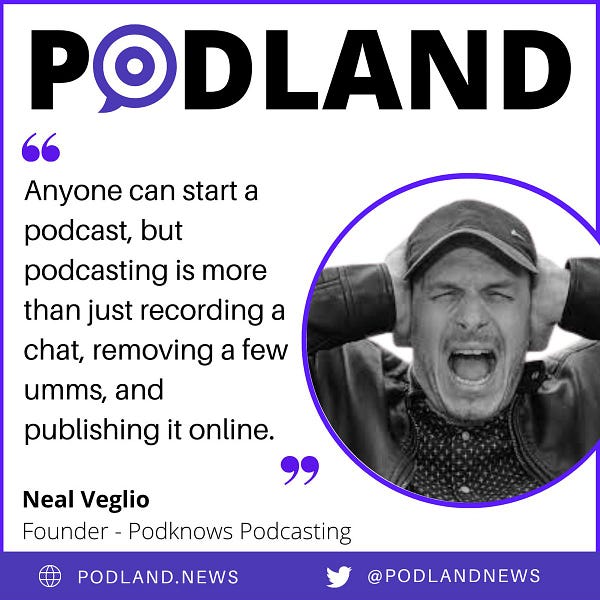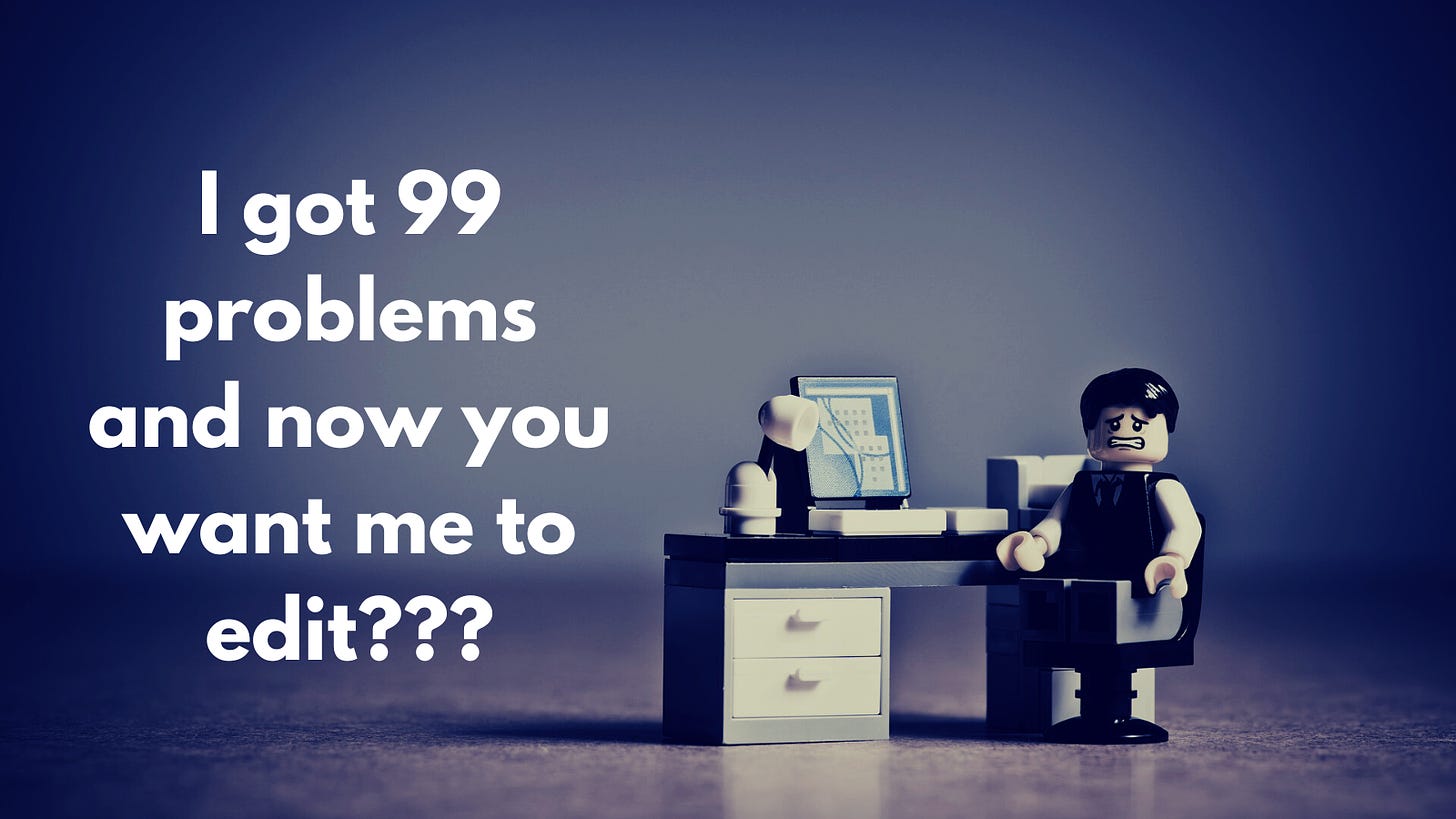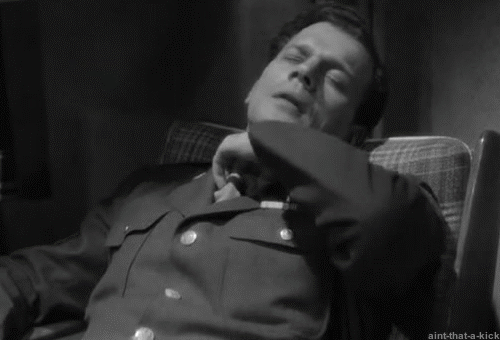It’s the question as old as time. Yep, even older than the tale that’s as old as time in Beauty and the Beast - should you edit your podcast?
Check any online forum or social media platforms, and it’s right up there with “are these good downloads” and “how do I make money with my podcast”?
Generally, there are two very clear sides to this question:
yes, you should always edit
no, it’s not necessary
Given that editing is also frequently the most popular answer in polls around '“what part of podcasting do you dislike the most?”, it’s understandable that the question on whether you should edit or not continues to come up.
So, should you edit? Let’s dig into that, using some examples as well as reasons why you should and reasons why you might not need to.
Yes, You Should Edit Your Podcast
I’ll be honest here - I used to hate editing with a passion, and didn’t even bother editing when I first started. It just seemed yet another thing to worry about - besides, great content is great content, right, and people will listen regardless?
Possibly - but that’s just our beliefs (that, admittedly, work for some, and we’ll look at that shortly), and may not be the viewpoint of your potential audience. And these are the people we’re editing for.
Not you. Not me. Our audience.
Editing is done for a reason, and it doesn’t matter what the medium is - movies, TV, podcasts, videos on YouTube, etc. Creators edit to improve the audience experience.
Think of the extras you get when you buy a movie on DVD, or buy it digitally. As well as the movie itself, you’ll get a bunch of extra stuff, including deleted scenes. When you watch these scenes, how many times do you think the movie suffered because they weren’t in it?
I’ll wager more much less than if they’d been included, because that’s why movies have editors - to make the tightest, most enjoyable cut of the movie for the audience. If the narrative isn’t impacted by turning a scene that was originally five minutes long into one that’s only three minutes long, then anything above that three minutes just becomes extraneous.
The same goes for podcasts.
Sure, it might be fun to shoot the breeze with your co-hosts, or offer up multiple facts around your topic if you’re a solo podcaster, but does this add to the overall listener experience? Sorry, but for the most part, more than likely not.
Listeners have a finite amount of time, and if your show eats into more than they can allocate then they’ll probably find another show, and one that’s been edited with care and thought.
Editing also fixes audio issues, from background noise to mouth clicks (I’m bad for this one), as well as audio levels between multiple guests and more. Again, this is for the listener experience, to ensure they’re not having to reach for the volume control every time someone different speaks, or an ad plays at a completely different level than the episode audio.
Here’s an example of that. Recently, podcasters Sam Sethi of Podland News and Neal Veglio of The Podmaster had an “edit off” for an episode of Podland News.


Sam would interview Neal, and then both of them would edit the episode to see the difference, and what - if any - improvements one had over the other when it came to the listener experience. You can listen to this episode below.
For reference, Sam’s edit kicks in at 1:07:53, while Neil’s edit kicks in at 1:35:20, and comes in around 10 minutes shorter than Sam’s. Some points I took away after listening to both edits:
the shorter time length of Neal’s edit was noticeable, with less “fluff” between questions/answers (sorry, Sam!)
Sam’s edit seems to make Neal’s voice louder, as well as have more echo around it
Neal’s edit equalizes the vocals, and removes that echo sound that I feel is in Sam’s
Neal’s edit also seems to remove some of the sibilance I found in Sam’s edit (where the “s” sounds are more pronounced)
It’s clear that Neal added vocal repair/optimization to his edit, where I feel Sam may have been more focused on the natural flow of the conversation, which is why his edit is longer.
It’s not that I wouldn’t listen to Sam’s podcast - but the changes made by Neal did make his edit more appealing to my ears at least.
Now, these are two hugely experienced podcasters so it’s worth keeping in mind that even experienced creators can see varying results. But, regardless of how much editing you go for, both these examples showed why it’s important.
Here’s another quick example, from a sponsor message I recorded to show how an audio optimization tool worked. Listen to the first few seconds, where there’s no editing (and, to be fair, I deliberately had a fan on and tried to make the recording as raw and unedited as possible), then listen to the audio once I add the audio repairs.
You can see the difference some noise reduction makes, as well as reverb adjustments. This makes it much more palatable on the ears which, if your show is longer in length when it comes to episodes, can make a big difference in audience retention.
No, You Don’t Need to Edit
However, there are many podcasters that don’t edit, with various reasons for their approach:
not enough time
don’t know how to
my show doesn’t need it (because of the type of podcast)
my audience prefers the raw me
All valid reasons, especially when it comes to time, since there’s already so much any indie podcaster without a podcast team (which, let’s face it, is pretty much most of us) needs to do, and editing is yet another addition to that list.
While I prefer to edit, I completely get why other podcasters don’t. Especially if you’re comfortable with your approach to recording, and the results are just as impressive as if you had edited.
Here’s a great example from Craig Burgess, host of The Wednesday Audio and other podcasts.
This is an improv show, where anything and everything goes, and Craig simply records out of the gate and flies with it.
Listening back, it’s hard to imagine it’s not edited, given the amount of transitions, effects, and more. But, as Craig himself shares on Twitter, it’s all one recording.


For me, this is a the perfect example of where an edit wasn’t needed, because it keeps the vibe of the show intact, as well as the humour and audience it’s aiming for. If you edited this, even for some brevity, I do believe it’d take away from the manic experience Craig is delivering.
Another instance where no edits work is for live shows, where the host(s) record their live stream, and then upload the episode. Sure, you could add certain audio optimization effects, to make it sound more “polished”, but then the live not-sure-what’s-going-to-happen-next mindset would be lost, and probably impact the show in a negative way.
Which no podcaster wants, ever.
So, Should You Edit Your Podcast?
In truth, it’s really down to you and what you feel your audience needs. For me, an edited episode makes for the most optimal listening experience, as you’re removing any uncomfortable parts before the listener gets it. That means you’re delivering only the best audio you can, each time.
But I also know there are a lot of great podcasters that don’t edit and, while you can often tell when listening back, the experience doesn’t suffer from it, because their mic technique and recording environment are excellent, which removes the need for a lot of post-production fixing.
If you’re unsure on whether you should edit or not, take a listen to the audio of a podcaster you admire, and who you might even want to be compared to. Make sure it’s in your niche and, ideally, you have a similar audience size (it’d be unfair to compare to a highly produced show from a team that’s making podcasts for millions).
Then listen to your show - can you tell a big difference in sound quality, tightness of show, smooth transitions, intros/outros, etc?
If so, you might want to consider adding editing to your list of things every episode needs. You don’t even have to edit a huge amount - just work on the things that really need work first, like background noise, mouth noises, uneven volumes, etc.
Start with small fixes and then gradually increase your editing as your knowledge and comfort level grows. It might take time, and patience, but the end result will be worth it.
Especially for your audience.






Hey! Wondering how my podcast business or podcast can be featured in your newsletter. Is there a place I can go to submit it for consideration, or pay for sponsorship/ads?
It’s an interesting topic (and a topic older than podcasting). It’s not as simple as always presented though. You do right here to present how a show may be ruined (thank you for featuring mine!) by editing.
Editing should be a direction choice, as in: how do you want the podcast to sound and feel? Mine--as just one poor example--is meant to sound manic and insane and WHAT THE HELL IS GOING ON.
I honestly think if you attempted to plan that it would lose its edge. And the same goes for other podcasts attempting to feel ‘live’.
It’s something we can learn from radio: a live radio broadcast has a danger and an edge. What’s going to happen when that person rings up? It isn’t as simple as just editing out ‘erms’, which I also believe we shouldn’t do anyway.
Podcasting, for me at least, should feel REAL. Like you’re there in the moment listening as the third person in the room.
Editing should be considered carefully